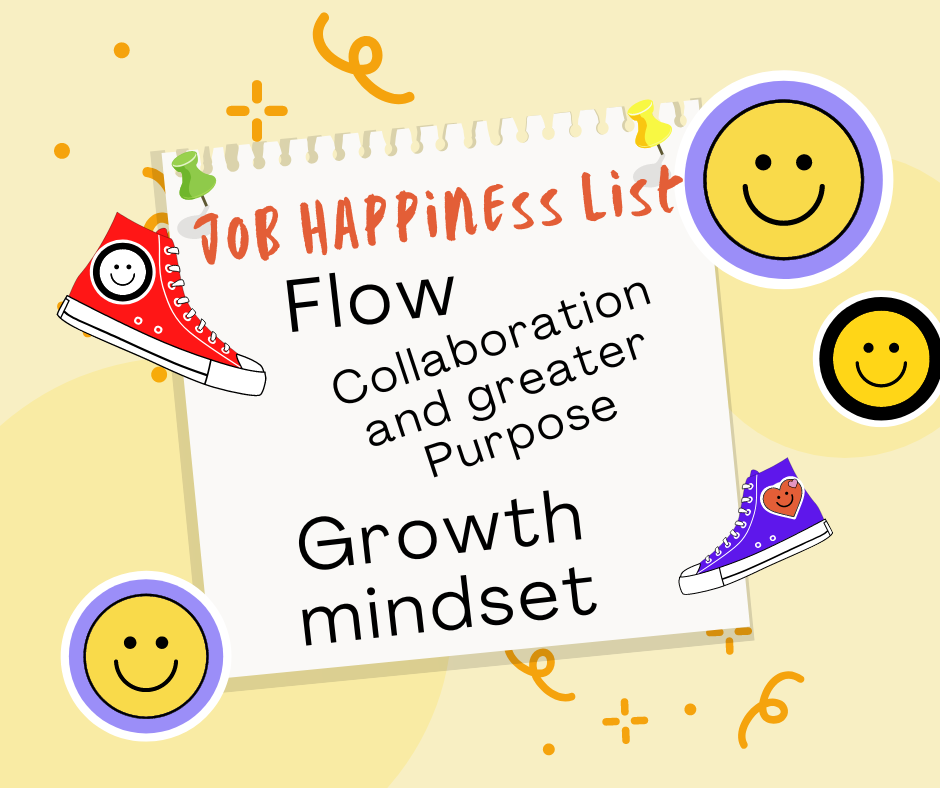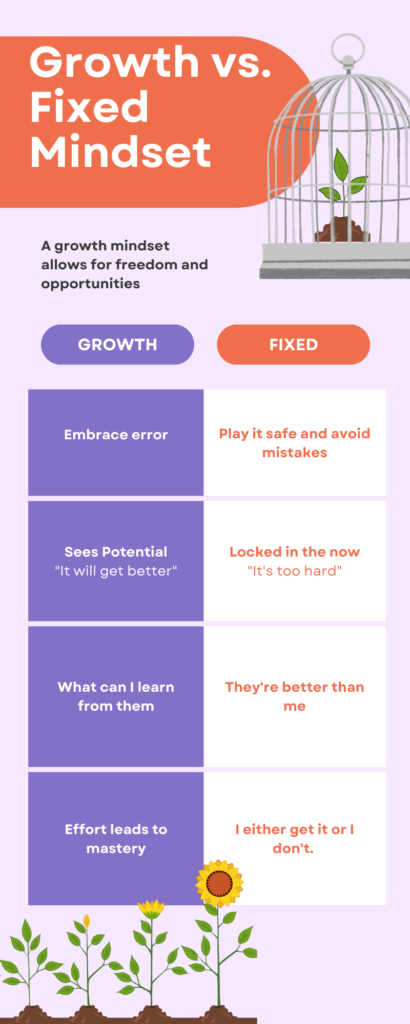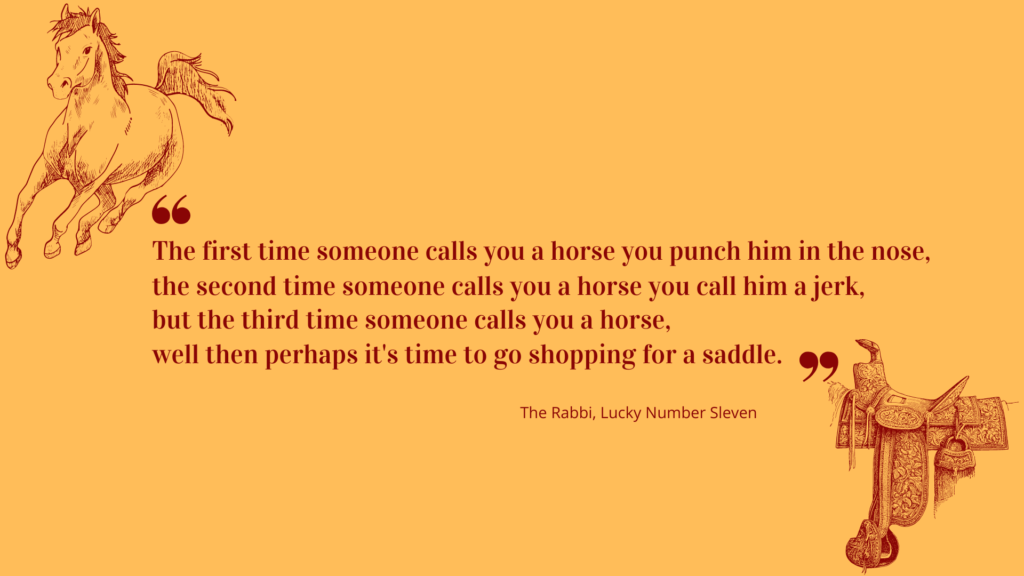Even if you’re unemployable.

The first time I walked out on a job has much in common with the last.
Specifically; the utter lack of disbelief on someone’s face. Oh! And aprons.
“But, Barb,” I protest, “I gave you my schedule. My classes start tonight. I can’t work a night shift!”
My manager and I face off with each other, behind the dinette counter, surrounded by salt-shakers, napkins, and half-combined ketchup bottles. Our matching aprons are the only thing we have in common.
Who would draw quickest?
A wadded-up napkin tumbleweeds across the space between us, and I take my shot:
“I called everyone on the list. No one’s available. I can’t miss the first night of class. They’ll drop me from the program!”
Barb’s draw is quick.
“Well, you better just stop complaining and get to work. The shift is starting. We need to get ready for the dinner rush.”
In my psyche, Barb stretches away, down an infinite hallway. The gap between us is huge, and growing by the second.
My final shot. My hands are undoing my apron before I realize I’ve decided.
“What are you doing?” Barb asks, eyes huge. “You can’t do this, think about what you’re doing!” her voice rises into the squeak range as my shot hits true.
“I can, and I am,” I say. Handing her the tidily folded apron, cash, and meal tickets, I walk out the door. POW!
Fast forward thirty-five years, and the end scene played out again:
I walked up to Dave, the large-box grocery store manager, and handed him a package comprising another tidy apron, a baseball hat with store insignia, and a printed resignation letter.
“Are you sure?” he asked.
“Yep,” POW!
The same cow-eyed look on both faces, the same treatment of apron-wearing employees. They couldn’t picture questioning the system that claimed individuals don’t matter.
My recent personality inventory listed me as essentially unemployable.
After all, I quit a stable government science-based job to go into acting, so.. Hey, there’s that.
Maybe it’s not me, though. Despite the Great Resignation still rumbling employer/employee relationships, good jobs are ridiculously hard to find.
My book-ended experiences led me to compile what makes a good work environment, whether it’s a job, or self-employment.

Defining a healthy workplace
I started with my favorite jobs: work on the set of a small movie, and serving food and wine at a small winemaker.
Creating flow by making a movie
Who doesn’t want this conversation:
“What did you do today?”
“Oh”, hairflip, “just, you know, spent the day on set. Working with a fab cast, director, and crew.”
Aside from the cool factor, what did I love about this job?
- I was never bored. Acting is always in the moment, the flow of the work.
- My fellow cast and crew and I were all focused on one thing: getting the movie filmed, doing our best work, and watching it come together as something bigger than the sum of the parts.
- Every time I stared at the camera lens, delivered my lines to my “son” sitting next to me, I helped create something for the editor’s palette, to put together later.
- Anytime there was a mistake (a flubbed line, bad lighting, a jet overhead), we learned from it, supported each other, adjusted, and ran the shot again. We grew from it
Creating flow by pouring wine
Pouring wine in a small tasting room/restaurant had a bit of a cool factor too:
“What did you do today?”
“Oh,” hairflip, “just you know, poured wine for people…oh and ran around like crazy because it was live music night, and the place was packed, and we couldn’t get the corks out quick enough, and we ran out of hummus, and…”
ok not QUITE as cool, but still fun.
So, … besides amazing wine (and a killer discount on it), what did I love about this job?
- I was never bored. Always in the moment, the flow of work.
- My fellow food servers and I were all focused on one thing: getting people served, creating something bigger than the sum of the parts.
- Anytime there was a mistake (a broken glass, the wrong wine, running out of hummus), we learned from it, supported each other, swept up the glass, gave someone extra cheese, and moved on. We grew from it.
My best work environments require flow, collaboration, purpose, and a growth mindset.
Let’s take a deeper look at each of these.
What is flow?
Mihály Csíkszentmihályi describes flow as a state of complete immersion in an activity.
You know, those times when hours go by like minutes?
Those times are flow – that zone between overwhelm and boredom. It’s magical time travel.
Besides flow, collaboration is important to significant work.
The importance of collaboration and greater purpose at work.
How much collaboration do you need? I love working on my own, but then it loses meaning for me if I don’t get to combine my work with others.
Collaboration is a magical place where individuals bring their individual-ness, and give it to the whole.
The cast and crew of a production all know “What” they’re doing – making a show. The camera operator brings her background work on scene planning. I bring my learned lines and my work on character development.
When each person cares, puts in their best work, investing in the What, the how becomes flow. Each individual blends and creates a larger, beautiful thing, whether it’s a show, or a well-executed busy night of live music, food and wine.
What is a growth mindset?
Visual: TEd talk
For the first couple decades of my life, I avoided things I struggled with. I used “easy” as a map of what I “should” do.
Then I tackled martial arts (link to my fear article). Getting my blackbelt was a seven-year apprenticeship in facing failure, using strengths, and learning a growth mindset.
<box>
“In a growth mindset, people believe that their most basic abilities can be developed through dedication and hard work—brains and talent are just the starting point. This view creates a love of learning and a resilience that is essential for great accomplishment.” Carol Dweck
Growth Mindset Vs. fixed mindset
<infographic>

Besides my personal list of healthy workplace traits (flow, collaboration/united purpose, growth mindset), Forbes also lists the following requirements for a healthy workplace:
- Recognition
- Fulfilling work,
- Opportunity and support for growth
- Trust
What makes a healthy workplace
As employees, it is our responsibility to cultivate these things for ourselves, and bring them to our fellow employees.
It goes double for those of us that are self-employed.
Yes, the workplace itself has to have a culture that supports these things. If while cultivating your healthy work, you run into resistance; evaluate the environment.
Hallmarks of an unhealthy workplace
When I first joined the big-box grocery store, demand overran them, and they couldn’t stock shelves fast enough. So I stepped up, excited to make a difference on the Covid front lines.
But some major warning signs came up which I tried to ignore:
- The way my heart would sink every time I saw that black apron lurking in its tidy roll on my dresser, like a straitjacket that I put on for every shift.
- The gossip when I arrived.
- Coming home from every shift completely pissed off.
Every workplace has issues, but the question is: do the issues dominate, or is it just a Monday?
If you feel you’re drowning, dreading every day going in, or your soul collapses when you look at that damn apron, it may be time to get out.
Here’s a toxic workplace checklist. If you check more than two or three on this list, think about making a change.
Toxic workplace checklist
Poor communication
“Sam called in sick, again. You’re by yourself tonight. Just get the customers served, and the rolls packed up. Anything else is great,” my boss said on his way out.
By the end of the shift, the floor supervisor came over.
“Why aren’t you done yet? Why isn’t the breadwall done?” she asked.
I looked up from the mop bucket, wiped frosting from my brow, and frowned.
“Gary told me to leave it for the morning, I’m-”
“He didn’t tell me that,” she interrupted.
“Ah, well, did he tell you I had to work the shift alone? The shift where there should be three of us?” I asked sweetly.
“Oh, well no! I’ve been wondering what’s going on in the bakery,” she vented.
Gee, ya think?
Cliques and Gossip
Let’s back up to Sam, who called in sick.
“… again today,” my manager rolled his eyes.
“Um,” I responded, “when does he work?”
“Apparently never,” Gary said. “I just don’t know about him. Supposedly his aunt has Covid, but it’s always some excuse. He just doesn’t want to work.”
“Um…”
Regardless of Sam’s issues, my manager had no business gossiping about them to me.
A Toxic Workplace may have intense pressure to get short-term results.
Things such as dusting the bread shelves, organizing the wall, arranging the cakes because the district manager is coming. “There’s no time to do the (healthy) cleaning protocols, just make it look pretty!”
Yeah. Nope.
Disrespect and lack of appreciation
When I finally got to work with the absentee Sam, I was stunned. He was a super hard worker. When I mentioned it, he told me, “No one has ever complimented me here before.”
Sam wasn’t flakey, he was disrespected, and unappreciated. No wonder he quit right after me. Think I started something?
Pessimism, apathy
“Why don’t we tell management? Maybe they are working on this broken pipe?” I asked.
“No point,” the shift manager told me, “they won’t do anything, so we just ignore it, and put a bucket under it.”
The next day, when the district manager came through, she asked me, “Why hasn’t this been reported?”
See point # 1.
Is it all me? Finding your true job

While I’ve focused on what’s wrong with them, let’s look at what’s my part in all this.
Do the same problems follow you from job to job?
For me it was working alone. I wanted to lean in, to collaborate. I switched from an isolated “specialist” job to an agency with a more team-oriented model.
My first day in the new team-oriented agency, I arrived in an office that was tense, with all employees buried in their computers. I followed suit. Rather than interrupt the quiet of the office, I would seek answers on Google.
Then I got sick of it.
I decided this habit of isolation had followed ME. I couldn’t keep blaming it on the places I worked.
I decided to make little changes.
I’d ask my coworker if they’d seen today’s weather report rather than use the app on my phone. When I got stumped on a procedure, rather than look up the manual, I’d ask someone.
I found that the more I did this, the more others did it with each other. I sparked a cultural shift in our office.
A year after coming to work in a quiet, tense office, I was getting called up front to dance with a coworker to a cool video.
Yep. This introvert inspired office dancing. Go figure.
If you find something keeps following you from job to job, ask yourself “What can I do to shift how I approach this?” I picked a small thing: asking humans before computers.
A small shift can start an avalanche of change.
Try a Myers-Briggs Career Test
Myers-Briggs has been around for decades, giving it a lot of real-world data to back its interpretations. My type, INTP, means:
- I’m Inverted – I recharge alone
- Intuitive – I take in the word a level or two (or ten) beneath what’s in front of me
- Thinking – I make my decisions based on thought, before feelings
- Perceiving – My ways of organizing the world, of how I think it should work, are on a case-by-case basis, rather than set rules.
Myers and Briggs is a simple way to look at what type of work or self-employment environment best suits you.
Some basic Myers and Briggs questions
- Are you introverted/extraverted?
- Do you take in just the information in front of you, or do you make leaps and connections that puzzle others?
- Do you make decisions methodically, or by gut?
- Do you perceive the world within a fixed set of boundaries, or do the boundaries flex based on situation?
The combination of results from these questions creates sixteen personality types.
No single personality is better, they all have weaknesses and strengths (there’s that growth mindset!)
For example:
INTPs like to collaborate. We also like to work alone. We struggle with rules, and with seeing what’s right in front of them. We live in a world of ideas. Personally, it means I like to work individually, but then surface from long periods of isolation feeling cut off from the world.
It also means I don’t swallow mindless routine and I question things. I always want a better way to do something.
I work for myself, which seems like an ideal situation, since INTPs don’t like to be told what to do. The problem comes in when I have to tell myself to do something. Not only am I trying to herd cats, I AM the cat.
So I’ve started incorporating these things into my self-employment routine.
Ugh there’s that word. Routine.
I made a promise to myself to stick to this schedule for 30 days, and see how it works. I expect I will improve it (there’s that always looking for a better way thing. )
I write for two hours, take a break. I network/socialize/collaborate for two hours, take a break. Then I learn/train for two hours (did I mention I’m eternally curious?).
Somehow, knowing that a lot of what I struggle with is just inherent in my personality gives me permission to find creative, compassionate, and constructive ways to deal with it.
Putting it all together – next steps
Combine the basics of a healthy workplace with self knowledge, and you can create your own best job. This work also arms you to choose a well-fitting job.
For example: I know I’m imaginative, a strong team-player, who works well alone. I need a growth-oriented workplace, with trust, transparency and good communication.
Create these things for yourself in your own business, for your employees, or in your workplace. Actions can range from quitting your job to join the circus (or acting school – link), or just talking to your coworkers more. Another option is to add a side hustle.
To learn more about Meyers & Briggs, start here.
Join others struggling with incorporating creativity into life, at Sideways Into Crazy Facebook group, and Blog/email list. We discuss supporting the artistic lifestyle, creativity and collaboration and growth mindset.